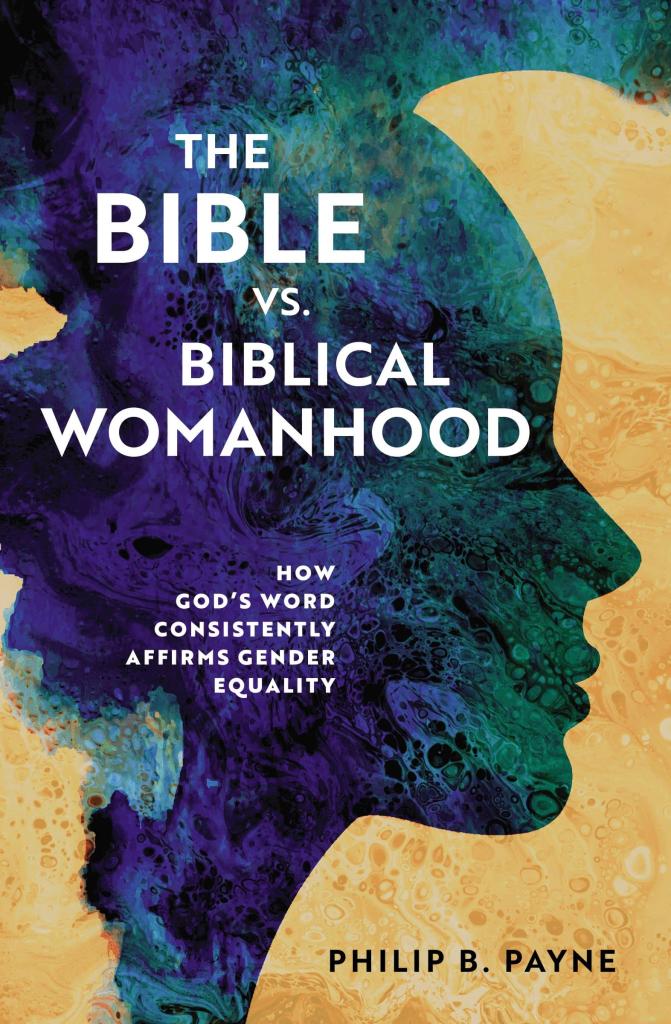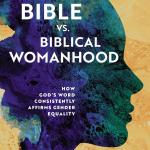Ben: Wish the chapter on Gal. 3.28 was longer. I wondered if you had read my NTS article on this verse. I don’t think it’s sufficient to simply equate what’s going on with ‘no male and female’ with the other two pairs which are neither/nor contrasts. Surely the reason there is not exact parallelism is because there is an allusion to the creation story in Gen. 1, and that text is about coupling, or marriage. But Paul’s view, like that of Jesus is one can be single for the sake of the kingdom, or married in the Lord. Christians don’t all have to fulfill the creation order mandate to propagate the species. And this saying in Gal. 3.28, like Jesus’ in Matt. 19 (or Paul’s in 1 Cor. 7), provides all sorts of new freedoms and possibilities especially for women— they don’t have to be married. They can devote themselves fulltime to ministry for the Lord.
PHIL: If you are referring to your “Rite and Rights for Women—Galatians 3:28.” New Testament Studies 27 (1980–1981) 593–604, I have included it in my online bibliography for Man and Woman, One in Christ for decades. I would love to have a signed off-print if you have any left.
I, too, would like to have given more attention to Gal 3:28. I have identified 42 evidences from the wording this verse, its context, and parallel passages, showing that it is virtually certain that Paul intended these words to apply to life in the churches.
I agree that the reason there is not exact parallelism is because there is an allusion to the creation story in Gen. 1, and that text is about coupling or marriage.
Amen! To “this saying in Gal. 3.28, like Jesus’ in Matt. 19 (or Paul’s in 1 Cor. 7), provides all sorts of new freedoms and possibilities especially for women— they don’t have to be married. They can devote themselves fulltime to ministry for the Lord.”
My studies on οὐδέ in Paul’s letters have led me to conclude that Paul almost always uses οὐδέ to combine two elements to convey a single idea. This led me to a different conclusion than “two pairs which are neither/nor contrasts”. I do not think Paul intended to convey “there is neither Jew nor Greek” in Christ since he repeatedly affirms that there are Jews in Christ and there are Greeks in Christ. Surely, his point in light of his usual use of οὐδέ is that there is “no Jew-Greek division” in Christ. That is, after all what the confrontation in Chapter 2 with Cephas is all about. I believe that Galatians 3:28 is a theological defense based in baptismal terminology of the equal standing and rights of each of these three pairs. Taken as such it is an absolute statement without any hint of limitations. It is not a statement that there are no differences between male and female or Jew and Greek or slave and free. Otherwise, what would those words even mean? But in Christ those differences do not limit status or privilege.
You ask, “But does this context really focus on equal ability or permission to lead? I don’t see that in the immediate context in Galatians, but maybe I’m missing something.”
I agree with you. The context is about equal standing a privilege. Withdrawing from table fellowship with gentiles is a denial of their oneness in Christ. I argue that any restriction regarding what gentiles, slaves, or woman are permitted to do in Christ is undercut by this Magna Carta affirmation. If it is wrong to exclude gentiles from table fellowship, surely it is equally wrong to exclude all women from positions of leadership in the church. Leadership should be decided by God’s gifting and guidance, not by race, economic status, or gender.
See Philip B. Payne, “1 Timothy 2.12 and the Use of οὐδέ to Combine Two Elements to Express a Single Idea,” NTS 54 (2008): 235–53, at 246. Philip B. Payne, “Οὐδέ Combining Two Elements to Convey a Single Idea and 1 Timothy 2:12,” in Missing Voices: Broadening the Discussion on Men, Women, and Ministry, ed. Hilary Ritchie (Minneapolis: CBE International, 2014), 24–34, at 25.














